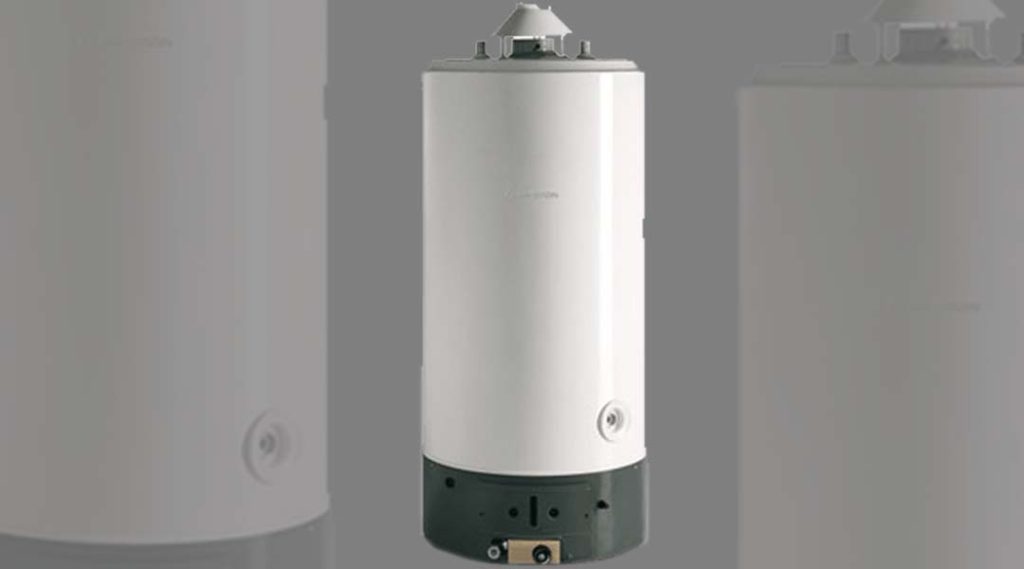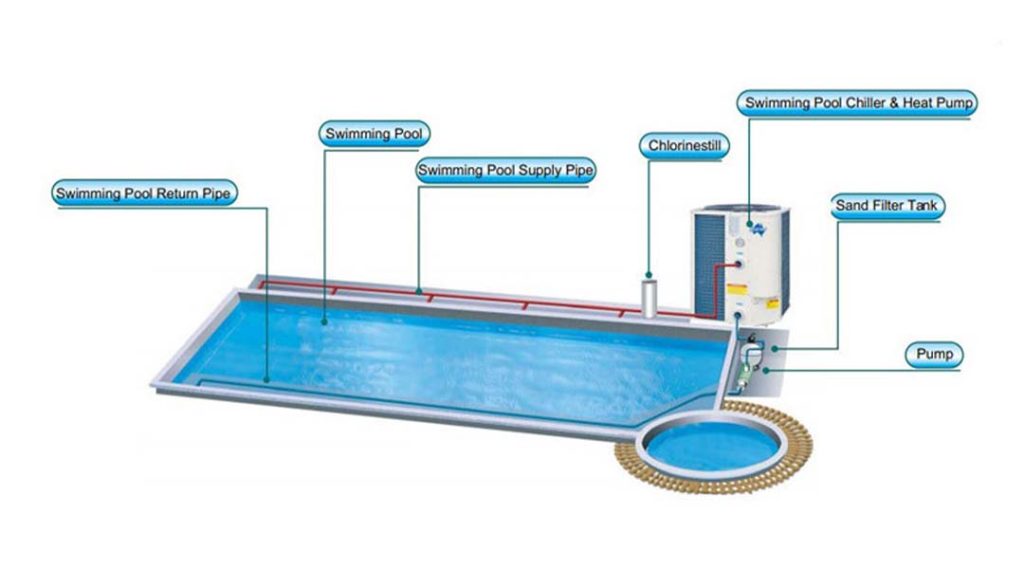A domestic hot water boiler is a system used to heat water for household purposes, such as bathing, cooking, and cleaning. It can utilize various energy sources, including gas, electricity, and solar power. These boilers may heat water in a storage tank or provide hot water on demand, depending on the design.
There are different types of domestic hot water boilers:
- Tank-type boilers Store hot water and maintain it at a constant temperature for use.
- Tankless (on-demand) boilers: Heat water only when needed, saving energy.
- Indirect water heaters: Use a home’s heating system to warm water.
- Condensing boilers: Capture and reuse heat to improve efficiency.
In Egypt, central gas boilers are commonly used to provide hot water to multiple outlets from a single heating source. This setup can be more efficient and space-saving compared to individual water heaters.
How do tank and tankless boilers compare?
Great question! Choosing between tank and tankless boilers depends on your household needs and priorities. Here’s how they stack up against each other:
| Feature | Tank Boilers | Tankless Boilers |
| Heating Method | Stores hot water and keeps it heated | Heats water on demand |
| Space Needed | Requires a storage tank | Compact, no storage tank |
| Energy Efficiency | Can waste energy keeping water hot | More energy-efficient—only heats when needed |
| Hot Water Supply | Limited by tank capacity | Unlimited, as long as demand isn’t too high |
| Initial Cost | Lower upfront cost | Higher upfront cost |
| Maintenance | Regular flushing needed to prevent buildup | Requires occasional maintenance but lasts longer |
| Lifespan | About 10-15 years | About 20+ years |
Which one is better?
- If you have a large household with multiple users needing hot water simultaneously, choose a tank boiler.
- Consider a tankless boiler for saving space, energy, and getting on-demand hot water.
Can you explain how energy efficiency varies?
Absolutely! Energy efficiency in hot water boilers depends on several factors, including heating method, fuel type, insulation, and usage patterns. Here’s a breakdown of how efficiency varies between different types:
- Tank vs. Tankless Boilers
- Tank boilers keep water heated all the time, which leads to standby heat loss—energy wasted when hot water sits unused.
- Tankless boilers heat water only when needed, eliminating standby losses, making them more efficient overall.
- Condensing vs. Non-Condensing Boilers
- Condensing boilers capture and reuse heat from exhaust gases, boosting efficiency to 90% or more.
- Non-condensing boilers let heat escape, making them less efficient (about 80% efficiency).
- Fuel Type Impact
- Electric boilers can be 100% efficient because all energy converts to heat—but electricity can be more expensive.
- Gas and oil boilers are typically 80–95% efficient, with efficiency depending on burner technology and insulation.
- Insulation & Smart Controls
- Better insulation reduces heat loss and saves energy.
- Smart thermostats and timers prevent unnecessary heating, improving efficiency.
Would you like tips on maximizing efficiency for your setup?
How do solar energy systems improve efficiency?
Solar energy systems improve efficiency through technological advancements, design optimizations, and maintenance strategies. Here’s how:
- Advanced Solar Panel Technology
- High-efficiency materials like perovskites and bifacial cells capture more sunlight.
- Tandem solar cells stack multiple layers to absorb different wavelengths, increasing conversion rates.
- Optimized System Design
- Solar tracking systems adjust panel angles to follow the sun, maximizing energy absorption.
- Proper orientation and tilt ensure panels receive the most sunlight throughout the day.
- Environmental & Operational Factors
- Temperature management prevents overheating, which can reduce efficiency.
- Anti-reflective coatings minimize light loss by reducing reflection.
- Regular cleaning removes dust and debris that block sunlight.
- Smart Energy Integration
- Energy storage systems store excess power for use during low sunlight periods.
- Smart grids optimize energy distribution, reducing waste.
What are the latest technologies in solar energy?
Solar energy is advancing rapidly with new technologies improving efficiency and accessibility. Here are some of the latest innovations:
- Perovskite Tandem Solar Cells
- These combine traditional silicon with perovskite materials, pushing efficiency beyond 33% in lab tests.
- They absorb a broader spectrum of sunlight, generating more electricity per panel.
- Bifacial Solar Panels
- These panels capture sunlight from both sides, increasing energy output.
- Ideal for installations where reflected light can be utilized.
- 3. AI-Powered Smart Systems
- AI optimizes solar panel performance by adjusting angles and predicting energy demand.
- Helps reduce waste and improve efficiency.
- Transparent & Flexible Solar Panels
- Transparent panels can be integrated into windows and buildings.
- Flexible panels allow for lightweight, portable applications.
- Advanced Energy Storage Solutions
- High-capacity batteries store excess solar power for use during low sunlight periods.
- Improves reliability and grid independence.
- Large-Scale Solar Projects
- The Shuaibah Solar Power Plant in Saudi Arabia is set to become the Middle East’s largest solar facility, with a 2.6 GW capacity.
- Iran is investing $1.5 billion in solar infrastructure to address electricity shortages.
Domestic Hot Water
Domestic hot water (DHW) refers to heated water used for household activities like bathing, cooking, and cleaning. It is typically supplied through water heaters, boilers, or solar thermal systems.
Types of Domestic Hot Water Systems
- Traditional Water Heaters – Use gas or electricity to heat stored water.
- Tankless Water Heaters – Provide instant hot water without a storage tank..
- Solar-Powered Systems – Utilize solar collectors to heat water efficiently.
- Recirculation Systems – Ensure instant hot water by continuously circulating heated water.
Energy Efficiency & Sustainability
- Solar-powered DHW systems reduce reliance on fossil fuels and lower energy costs.
- Recirculation systems minimize water waste by delivering hot water instantly.
A domestic boiler is a heating system designed for residential use, providing hot water and central heating. There are several types of domestic boilers, each suited to different household needs:
Types of Domestic Boilers
- Combi Boilers – Compact and efficient, providing hot water on demand without a storage tank.
- System Boilers – Use a separate hot water cylinder, ideal for homes with multiple bathrooms.
- Conventional Boilers – Require both a hot water cylinder and a cold water storage tank, suitable for larger homes.
Key Considerations
- Efficiency: Modern condensing boilers can achieve 90%+ efficiency, reducing energy costs.
- Size & Capacity: Choose a boiler that matches your home’s heating and hot water demands.
- Fuel Type: Options include gas, oil, electricity, and biomass, depending on availability.
- Installation & Maintenance: Regular servicing ensures longevity and optimal performance.
energy-efficient domestic boilers
Here are some of the most energy-efficient domestic boilers available in 2025:
Top Energy-Efficient Boilers
- Viessmann Vitodens 050-W Combi Boiler – 92% efficiency, compact design, and built-in Wi-Fi for remote control.
- Ideal Logic Combi Boiler – 94% efficiency, wall-mounted, and available in multiple output sizes.
- Worcester Bosch Greenstar 4000 – 94% efficiency, user-friendly LCD display, and wireless connectivity.
Why Upgrade to an Energy-Efficient Boiler?
- Lower Energy Bills – High-efficiency boilers convert more fuel into usable heat, reducing costs.
- Eco-Friendly – Less fuel waste means lower carbon emissions.
- Advanced Features – Many modern boilers come with smart controls for better energy management.
A hot water boiler is a heating system designed to provide hot water for residential, commercial, or industrial use. It works by heating water using gas, oil, electricity, or biomass, then distributing it through pipes for various applications.
Types of Hot Water Boilers
- Condensing Boilers – Highly efficient, recovering heat from exhaust gases to improve performance.
- Non-Condensing Boilers – Simpler design but lower efficiency compared to condensing models.
- Electric Boilers – Ideal for areas without gas supply, offering clean and quiet operation.
- Industrial Hot Water Boilers – Used in large-scale applications like district heating and manufacturing.
Benefits of Hot Water Boilers
- Energy Efficiency – Modern boilers can achieve 90%+ efficiency, reducing energy costs.
- Reliable Heating – Provides consistent hot water for domestic and commercial needs.
- Eco-Friendly Options – Some models use renewable energy sources to minimize environmental impact.
A swimming pool boiler is used to heat pool water efficiently, ensuring a comfortable swimming experience. These boilers work by circulating water through a heat exchanger, where it absorbs heat before returning to the pool.
Types of Swimming Pool Boilers
- Gas Boilers – Reliable and fast heating, ideal for larger pools.
- Electric Boilers – Eco-friendly when paired with renewable energy sources.
- Solar-Powered Systems – Utilize solar energy for sustainable heating.
- Heat Exchanger Systems – Work alongside existing heating systems for efficiency.
Benefits of Pool Boilers
- Consistent Heating – Maintains a comfortable water temperature year-round.
- Energy Efficiency – Modern boilers reduce energy consumption and costs.
- Versatile Options – Choose from gas, electric, or solar-powered systems based on your needs.
as boilers for swimming pools
Swimming pool boilers are essential for maintaining a comfortable water temperature, especially in colder climates or for year-round swimming. Here’s what you need to know:
Types of Swimming Pool Boilers
- Gas Boilers – Efficient and powerful, ideal for larger pools.
- Electric Boilers – Eco-friendly and suitable for smaller pools.
- Solar-Powered Systems – Sustainable option using solar energy.
- Heat Exchanger Systems – Work alongside existing heating systems for efficiency.
Benefits of Pool Boilers
- Consistent Heating – Ensures a comfortable swimming experience.
- Energy Efficiency – Modern boilers reduce energy consumption.
- Versatile Options – Choose from gas, electric, or solar-powered systems.


